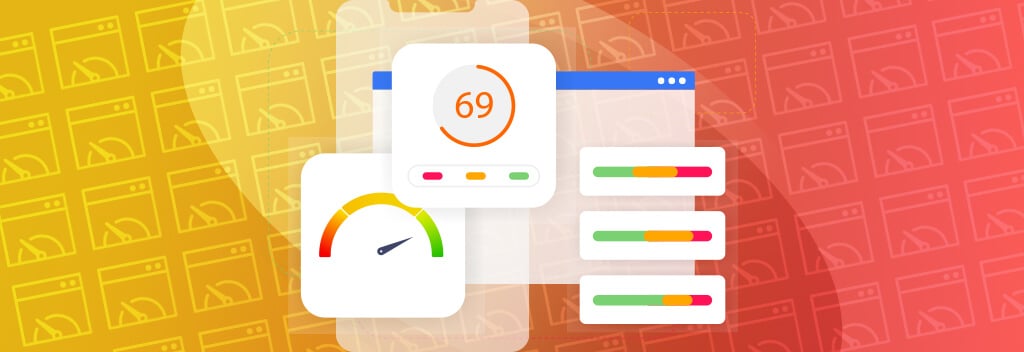We build and manage B2B websites for a variety of clients. We also implement many search engine optimization (SEO) best practices as part of the scope for certain websites and ongoing marketing projects.
While every B2B website design and audience is unique, one thing that affects the SEO of all of them is page speed. Like it or not, page speed is a ranking factor for all websites.
In this post, we explore why Google PageSpeed Insights are important to SEO and our tips for getting the best results.
Before we dive in, be sure to check out:
What is page speed and how does it impact my website?
Page speed tips from a website developer
Which page speed monitoring tool should I be using for my B2B website?
Google Lighthouse. Google PageSpeed Insights. GTmetrix. Which is the best for monitoring and improving page speed on your B2B website?
Essentially, Google Lighthouse and Google PageSpeed Insights are the same. The first is built into the Chrome browser and the second is an online tool (website). There isn’t a huge difference in the data provided by these two so you can treat them the same. PageSpeed Insights is certainly the tool favored by seasoned SEOs and technical marketing teams.
PageSpeed Insights, particularly the Core Web Vitals section, looks at page speed data based on the last 28 days of data. PageSpeed Insights also focuses more on things the search engine prioritizes, rather than how the site is functioning from a user’s perspective.
GTmetrix is another page speed monitoring tool and is typically used by website developers and maintenance companies. Why? Because GTmetrix measures in real time how quickly pages are loading and what users are seeing as the pages load.
In our B2B web design and development experience, we recommend looking at both tools to get a comprehensive picture. Looking at both enables your team to troubleshoot, test, and diagnose what may be negatively impacting your B2B website’s page speed.
What are the main issues that negatively impact page speed on a website?
The main issues impacting page speed for many B2B websites include:
- Poor web hosting service or inadequate hosting plan
- Not using website caching
- Large, oversized images that aren’t compressed
- Unnecessary code (HTML, CSS, JS)
- Trying to load all website elements on a page before the user scrolls
- Scripts and tracking codes
The majority of these issues we discuss in detail in our blog post on Tips to improve website page speed. However, in our recent experience, the last one has proven to be a significant factor and depends on the website itself.
Do third-party scripts and tracking affect my page speed?
The simple answer is yes. Third-party tracking codes and scripts always have an impact on page speed. These include cookie consent banners, anti-spam protection, paid ad traffic tracking codes, and lead attribution tracking, to name a few. While there is often a crucial business need to install these tracking codes on a B2B website, if SEO is your primary concern you need to evaluate whether a tracking code is essential or just a nice to have.
For example, in sites that we have audited for page speed recently, we’ve encountered issues with the Microsoft Ads/Bing Ads tracking code slowing down a website’s page speed. We’ve also seen codes from lead attribution software like LeadForensics slow down page speed. While we do not suggest deleting all tracking codes, especially for tracking paid ad traffic like Bing ads or website visitor information like LeadForensics, we do recommend being discerning about adding codes.
We think about tracking codes and page speed as setting a performance budget. You set a performance budget for how many tracking codes or scripts you can add to a website. That way, when you need to add a new code for business-critical reasons, you must consider codes to remove as well.
A good analogy is having car insurance. Insurance is something that you need to have for legal protection, but often have to pay for without much gain. You can risk going without it for short-term financial gain, but the risk is very high. In website terms, something like cookie banners and privacy consent codes are required to minimize your firm’s risk but they may cause your page speed to drop a small amount. While there is a negative SEO impact for these codes loading on the site, they are crucial to reducing your firm’s legal exposure and protecting a visitor’s privacy.
How often should I do page speed optimization on my website?
Before 2023, you could do page speed optimization on a standard B2B website once a year and maintain good rankings and great scores for page speed. However, the reality now is that you must perform page speed optimization on your website at least two to three times a year. Ideally, if you have the resources, a page speed audit quarterly is your best bet.
What should I prioritize in a page speed audit?
An in-depth page speed optimization audit on a 20-page website requires about eight to ten hours of a website developer’s time. As such, it’s important to focus on high-value optimizations and go after the lowest-hanging fruit. This can often be done in multiple rounds of page speed optimizations.
Start by going after what we list in tips to improve page speed website as these will have the biggest impact on the user experience (UX) and make browsing your website more seamless for visitors. Then, move on to the technical optimizations, like tracking code audits, lazy-loading website assets, removing animations, and delaying animations.
A few notes on page speed optimization
No one-size-fits-all solution
Page speed optimization is not one-size-fits-all for every website. For example, each B2B website design we create is unique and has different functionality, layouts, designs, integrations, plug-ins, and tracking codes. As such, each website will have different page speeds even if best practices are followed in the website build. You can’t apply the same optimizations to each website and expect the same page speed improvements.
Mobile vs desktop page speed
Other thing to remember is that there is a difference in Google PageSpeed Insights for mobile vs desktop speeds. In this tool, mobile page speeds are evaluated on a slow 4g network on purpose (the lowest common denominator). This means that the mobile website page is often much better on 5G networks, which are standard in most business environments in the US. It’s also important to consider how much of your B2B website traffic is coming from a mobile device. In our experience, less than 20% of a B2B website’s traffic is on a mobile device.
Google fails core web vitals
It’s funny to note that even sites like Google.com and gmail.com fail core web vitals. Chew on that for a bit.
Don’t do everything the search engine says
Google does shift stuff around regularly and page speed optimizations change over time – sometimes from month to month. The search engine’s goal is admirable as we believe the company wants to come up with ways of measuring page speed and UX that are actionable for website managers. However, it’s also notable that there may be business reasons not to do everything that Google says. A good example of this is using a tracking code for something like LeadForensics when it’s more crucial to have website lead information over a 99 score on Google PageSpeed Insights.
The tools have a psychological draw
All these page speed evaluation tools are engineered to make you want that perfect score. They even include reds and greens to appeal to our brains that red is bad and green is good. Just remember that a perfect score isn’t always ideal for business and doesn’t always mean that your website is awesome from the user’s perspective.
Experimentation is required
Successful page speed optimization requires experimentation. As each website is unique, experimenting and testing are key to finding what moves the needle on page speed the most. Testing out theories also shows that fixing one thing can break another. For example, lazy-loading a website dramatically improves the website page speed, but if the Google Analytics tracking code is lazy-loaded, you’ll miss collecting data on the majority of your website traffic.
Experience counts in page speed optimization
Just like SEO, page speed optimization ends up being more of an art than a clearly defined process. The key to success is partnering with a knowledgeable and curious B2B website development team that thrives on troubleshooting, testing, and finding solutions to meet the business needs of your organization.



